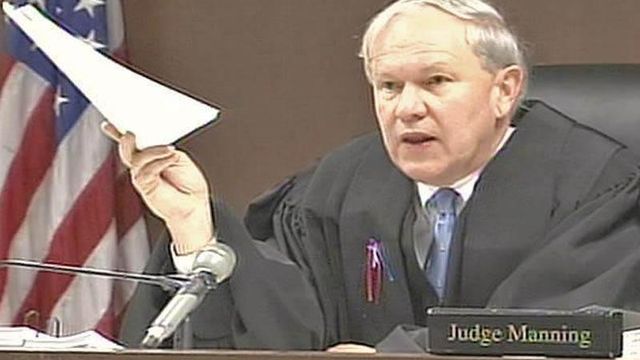Judge: Some Low-Performing Schools Remain a 'Mess'
A judge on Thursday chastised several North Carolina school districts, saying improvements he ordered in dozens of low-performing schools are too slow in coming.
Posted — UpdatedSuperior Court Judge Howard Manning has been pushing education reform in poor school districts for almost a decade while overseeing the Leandro case, which found the state provided inadequate support to many schools in rural areas.
Educational groups pressing for more changes more quickly at the schools outlined numerous deficiencies in a letter to Manning, which irrittated the judge.
"Do you think that I'm dumb? That I don't know what's going on?" he asked them.
Manning said he has visited 13 of the schools involved in the suit and told officials in various districts Thursday that he doesn't like what he sees.
"In some of these high schools, they're making some progress. In some of them, the lights aren't on," he said, calling some of the 35 schools the case is designed to help "a mess."
Pat Ashley, the state director of high school improvement, said 17 of the schools have a plan about how they will move forward, while the other 18 are working on plans.
"They have good frameworks for action that are a start, but they need to be in a plan of continuous improvement. They don't need to be satisfied if they just accomplish what's on this list because there is a big hill to climb," Ashley said.
Some of the schools have received help from the state in the form of leadership training for principals and curriculum specialists. Many also have started freshman academies to get students off on the right foot in high school.
But Manning said students are being passed along in many school districts and simply aren't ready for high school.
"The daggone principals at the middle schools ought to be skinned for turning them out like that," he said. "The school improvement plan isn't worth the paper it's written on unless people are actually doing what the school improvement plan says."
Some testimony focused on programs that are working to help young people, and the judge said those programs should be role models for other school districts.
Teachers said schools should challenge students but must also be available for them if they need help.
"I think that will make a substantial difference in the citizens that we produce," said Kristin Cuilla of East Wake Technology High School.
Manning said he would revisit the case by mid-summer.
Related Topics
• Credits
Copyright 2024 by Capitol Broadcasting Company. All rights reserved. This material may not be published, broadcast, rewritten or redistributed.





